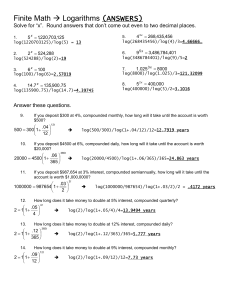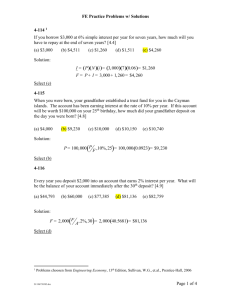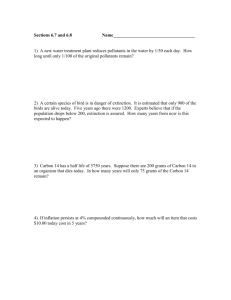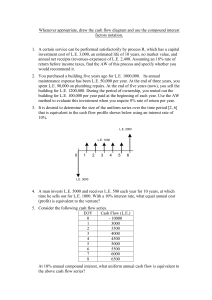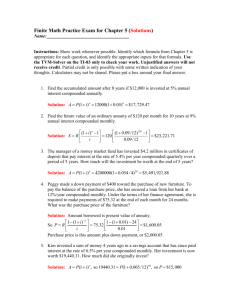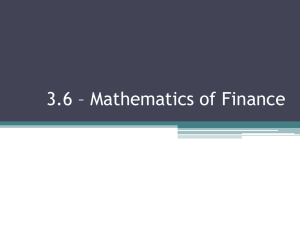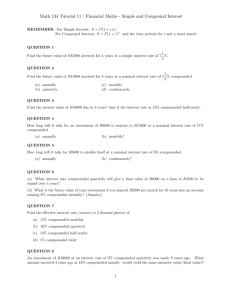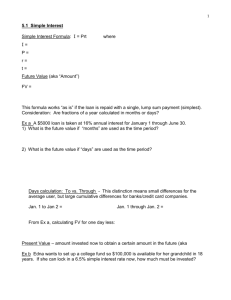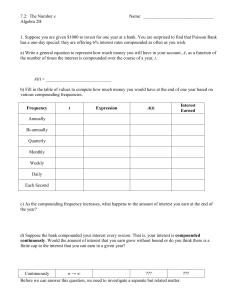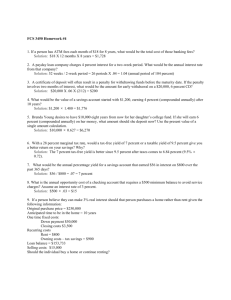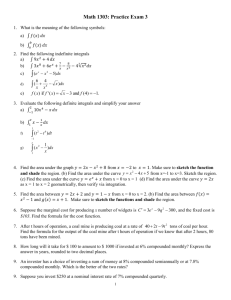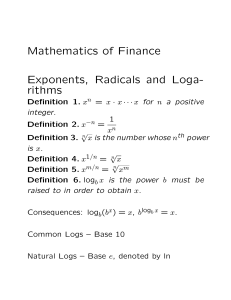Finite Math Logarithms
advertisement
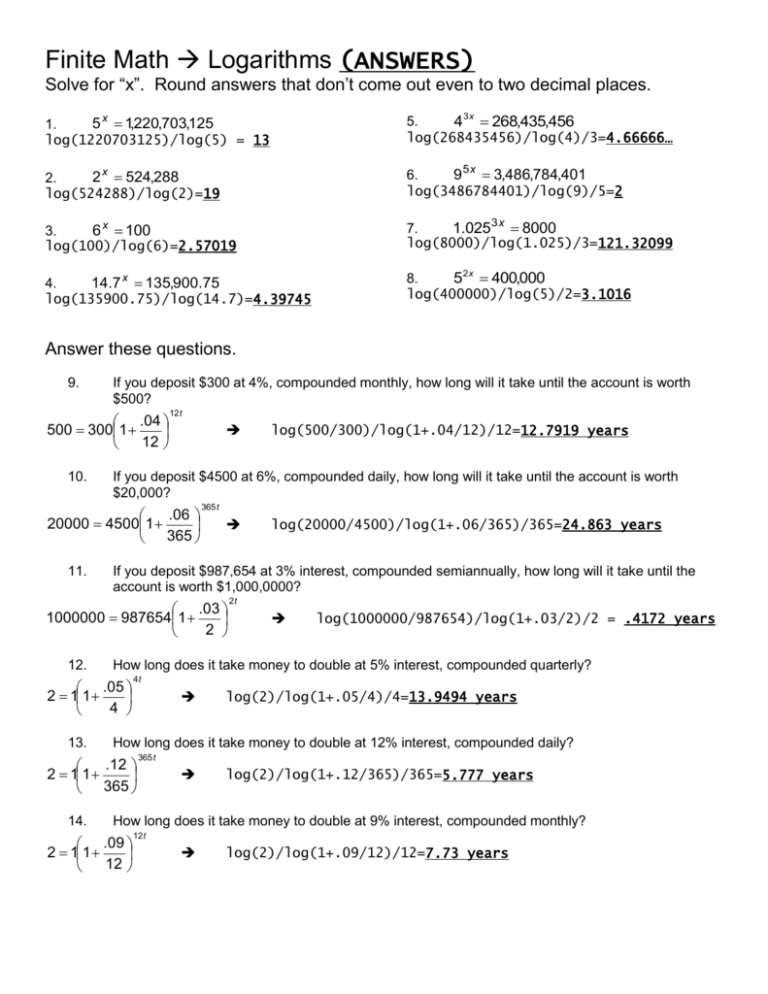
Finite Math Logarithms (ANSWERS) Solve for “x”. Round answers that don’t come out even to two decimal places. 5 x 1,220,703,125 1. log(1220703125)/log(5) = 13 5. 43 x 268,435,456 log(268435456)/log(4)/3=4.66666… 2 x 524,288 2. log(524288)/log(2)=19 9 5 x 3,486,784,401 6. log(3486784401)/log(9)/5=2 3. 6 x 100 log(100)/log(6)=2.57019 7. 1.0253 x 8000 log(8000)/log(1.025)/3=121.32099 14.7 x 135,900.75 4. log(135900.75)/log(14.7)=4.39745 8. 52x 400,000 log(400000)/log(5)/2=3.1016 Answer these questions. 9. If you deposit $300 at 4%, compounded monthly, how long will it take until the account is worth $500? .04 500 3001 12 10. 12 t If you deposit $4500 at 6%, compounded daily, how long will it take until the account is worth $20,000? .06 20000 45001 365 11. 365 t log(1000000/987654)/log(1+.03/2)/2 = .4172 years 4t log(2)/log(1+.05/4)/4=13.9494 years How long does it take money to double at 12% interest, compounded daily? .12 2 11 365 14. 2t How long does it take money to double at 5% interest, compounded quarterly? .05 2 11 4 13. log(20000/4500)/log(1+.06/365)/365=24.863 years If you deposit $987,654 at 3% interest, compounded semiannually, how long will it take until the account is worth $1,000,0000? .03 1000000 9876541 2 12. log(500/300)/log(1+.04/12)/12=12.7919 years 365 t log(2)/log(1+.12/365)/365=5.777 years How long does it take money to double at 9% interest, compounded monthly? .09 2 11 12 12 t log(2)/log(1+.09/12)/12=7.73 years 15. How long does it take money to triple at 10% interest, compounded daily? .1 3 11 365 16. 365 t log(3)/log(1+.1/365)/365=10.9876 years How long does it take money to triple at 4% interest, compounded annually? .04 3 11 1 1t log(3)/log(1.04)=28.011 years Solve. 17. A bank advertises an effective rate of 7.52%. If interest is compounded daily, what is the nominal rate? This is backwards from the previous effective rate problems we did. We’re given the effective rate (reff) and we have to find the nominal rate (r). You won’t have to do this on a test, but it’s not all that hard to do: .r .0752 1 365 365 1 To solve this, first add 1. .r 1.0752 1 365 365 What we need to do is get rid of the 365th power. We can do this by taking both sides to the 1 365 power (which is the same as the 365th root). 1.000198668 1 .r 365 Now subtract 1 .r 365 .000198668 Finally multiply by 365 .0725138929 r 18. So it’s about 7.25% A bank advertises an effective rate of 2%. If interest is compounded quarterly, what is the nominal rate? 4 .r .02 1 1 4 To solve this, first add 1. .r 1.02 1 4 4 What we need to do is get rid of the 4th power. We can do this by taking both sides to the ¼ power (which is the same as the 4th root). 1.004962932 1 .r 4 Now subtract 1 .004962932 .r 4 Finally multiply by 365 .0198517263 r So it’s about 1.985%
